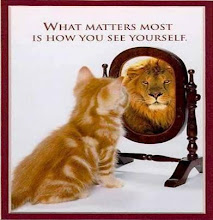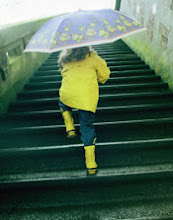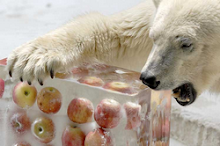Thursday, January 26, 2012
Monday, January 16, 2012
Sunday, January 15, 2012
Saturday, January 14, 2012
Friday, January 13, 2012
Princeton Review MCAT Hyperlearning
 Your Princeton Review tools
Your Princeton Review tools - 3,000+ pages of comprehensive, up–to–date materials (delivered via forklift). Each subject set includes content review, practice questions and practice passages
- MCAT Physics and Math Review: Close to 500 pages
- MCAT General Chemistry Review: More than 300 pages
- MCAT Biology Review: 500+ pages
- MCAT Organic Chemistry Review: In excess of 300 pages
- MCAT Verbal Reasoning and Writing Review: 400+ pages
- Science Workbook, hundreds of MCAT–style practice passages and questions with complete explanations (900+ pages)
- Verbal Workbook,about 300 pages, including dozens of MCAT practice passages and four full–length Verbal Reasoning practice tests with complete explanations
- In–Class Passage Compendium, the equivalent of five MCATs' worth of additional test questions
- Science Review Questions and Solutions, hundreds of practice questions designed to make sure that the basic science concepts are firmly embedded in your brain.
- Access to LiveGradersm for feedback on your essay from an MCAT essay specialist
22.5 hours of verbal prep–the most in the industry
Thursday, January 12, 2012
Parental Counseling

- Home School Program Outline (1-6 Grader, Pre-GED, GED, Pre-SAT, SAT)
- Home School One-Word-A-Day Index Card System
- Working-With-Hands Creative Artist (Drawing, Clay Molding, Anatomy Coloring, Lego)
- Home School "Official" Transcript
- Internet Blog Archiving System
- Technology Interface (Macs, Ipod, Printer/Scanner, Cell, Student Apps, Typing, Word/Excel/PwrPT)
- Study Method System (Comprehend, Organize, Memorize, Index Cards, Critical Thinking, Time Mgt, Syllabus Review, Low Stress Educ)
- Excel Mapping Worksheet
- Essay Mini-Map Outline
- Speech Presentation Outline
- Spanish Verb Tense Outline
- HWH Course Previews (Cal, Chm, Phy, Org.C)
- Student Cash Reserve Accounts
- Student Thank You & Follow-up Letters
- MD & MCAT Library
- BC Semester Program Outline
- FAU Semester Program Outline
- Financial Aid Spreadsheet, FAFSA, & Debt Free 4yr College Degree
- Driver License, Personal Safety (pepper spray)
- MD Timeline
- Resume & Cover Letter
- Clinical Journal
- Leadership / Mentoring Clubs (study groups, TA, Library Vol, PSY Club, EDG2949)
- Research & Lab Volunteer Program (Chem/Bio/Phy Lab Vol)
- Shadow Doctor Programs (DO)
- Recommendation Request Letters & Archiving
- MCAT Study Schedule & Program (register for class?)
- Personal Essay (SDN)
- Medical School Application & Deadline
- Mock Interview Techniques (Q&A)
- Dress Code Etiquette
- Secondaries & MD School Interviews
- Home Mtg Pay-off, 2nd Income (New Cars + Ins, & Health Ins)
- Credit Reports & MD Financing Application
- Student Loan Amortization Payoff Schedule
Wednesday, January 11, 2012
Sunday, January 8, 2012
Clinical Journal

- Describe your clinical experiences this week.
- What were your personal goals for clinical experience this week? How did you meet these goals?
- Describe a specific experience with one of your “special” patients that facilitated your learning this week.
- What do you see as the role and responsibilities of the nurses, doctors, lab assistants, etc in the clinical area?
- Briefly describe your most significant event this week. How will this event influence your clinical practice?
- Is there anything you would have done differently this week? Why? What would you do?
- Identify a personal goal that you would like to meet next week.
- Discuss the most challenging communication incident you encountered. How would you handle this situation in the future?
- What do you think people in this community need? What information have you based this on?
- Describe your “most interesting” patient’s situation: patient’s age, past medical/surgical history, current condition, correlate with past disease processes, risk factors with this condition, correlate all medications, with labs (name, classification, dosage, frequency, route, and if IV infusion, the ml/hr, side effects).
- Find an evidence based journal article that relates to one of the areas you have addressed in your reflective narrative. Include a discussion of how the information in the article relates to your patient care experience and how the article facilitated your learning.
- Identify doctor (s) diagnoses in order of priority. Identify a measurable outcome and three interventions for the priority diagnosis that was utilized in the care of this patient. Include an evaluation of the success of the interventions. Be Specific.
- What medical advice was offered the patient and/or family? What communication principles was utilize?
- What prevents the patient from being transferred or discharged? Discuss how and with whom was collaborated with in relation to this patient.
- Discuss cultural, ethical, or value issues you encountered today. Relate how you felt and what you learned from these issues.
- How is the clinical office organized, managed, supervised, operated?
Observable & Describable Clinical Experience
Filing. Answering Phones. Triage patients on phone/office. Call in prescriptions. Order special studies. Relay results to patients. Run lab tests (UA’s, pregnancy & glucose tests). Develop & read Xrays. Read clinical charts. Read & Learn patient medical histories. Log patient history, diagnosis, & ailments in computer system. Review blood work and apply knowledge (diabetic, anemic, etc). Shadow/ears-drop-medical assistants/nurses. Communicate with patients. Read and interpret patient charts. Learn about drugs and ailments (viral, anti-bacterial, fungal). Learn uses of medical equipment and instruments. Comfort patient (snacks, treats, blankets, water, humor, etc). Gain insight into patient and doctor relationship. Learn safety and health guidelines and rules. Learn about medical supplies, ordering, stocking. Observe procedures (first aid, pap smears). Learn patient intake (vitals, history). Understand the duties, roles, and hierarchy of each staff member. Learn how a medical office is managed and operated. Develop communication, leadership, mentoring, teaching, maturity, and management skills.
Sunday, January 1, 2012
Best Home Remedies
Blood Pressure, Diabetes, Bitter Blood, Cholesterol, and Itchy Feet + Hands
Bitter Mixture - boil in pot of water, leaves of: (1) bitter (cirela) lemons (low blood pressure), (2) fever (lemon) grass (fights cancer), (3) pear (avocado) leaves (blood purifier, blood pressure), (4) head of romaine/iceberg lettuce (mild sedative), (5) ginger (lowers blood cholesterol, treats inflamation), (6) cinnamon (for diabetes), and (7) Crush a head of Garlic (high blood pressure, cholesterol). Drain and store liquid in refregrator. Drink 1-2 shot glass daily. If taste is too strong dilute with water, or add organic honey for sweet taste.
- Baking Soda: put one teaspoon in half a glass of water, swish, spit and rinse. Odors are neutralized, not just covered up.
- Apple Cider Vineger - a teaspoon in a small glass of water, rinse mouth 2-3 times, between brushing teeth.
- Aspirin - one baby aspirin (81mg) per day is great for keeping the heart pumping, but only if 40 years or older.
- Baking Soda - brush teeth nightly with baking soda to remove plaque and bacteria build-up
- Annual teeth cleaning once a year at local dentist
- Baking Soda, Tea Tree Oil (10 drops per ounce), Apple Cider Vinegar, Everclear - Ethnol Rubbing Alcohol (milder 70%, not Isothonal), Lemon Juice - dip finger in vinegar, or any of the above (can use a spray directly to underarm) and rub under arms. Apply liberal coating of baking soda under arms and leave for about 5 mins, before showering. After shower, you can rub underarm with Tea Tree Oil. Do not use any deodorants , it will attract bacteria.
- During the day can freshen up with wiping underarms with antibacterial baby wipes.
- Alchol Wipes or Hand Sanitizer lotion can also works. Spray on alcohol underarm of shirt during luch breaks
- Rose essential Oil or Lavender essential oil
- Aloe Vera Juice
- Spay alcohol in shoes to kill odor
- Milk of Magnesia as a deodorant
- Baking Soda: for lustrous hair with more shine, keep brushes and combs clean. Remove natural oil build-up and hair product residue by soaking combs and brushes in a solution of 1 teaspoon of baking soda in a small basin of warm water. Rinse and allow to dry.
- Apple Cider Vineger - is great for heart burn. A capful in a glass of water, or 1 tablespoon with honey.
- To control diarrhoea heat up a cup of milk and ground black pepper (about three shakes). Then drink the mixture.
- Metamucil natural fiber supplement - 1-2 tablespoon daily ot every other day
- Drink prune juice with pulp, daily
- Any over-the-counter brand - but only 1/4 to 1/2 tablet, and no more than 2x week. Note, contain antihistamines and is not to be used 2-3 nights at a time. Tolerance can develop quickly making it innefective.
- Exercise and/or take a long walk at night before sleeping
- Do not eat or drink liquid after 7pm, if plan to sleep at 10pm
- Sleep with ear plugs (available at local pharmacy)
- Cocount Oil (can substitute Olive Oil) - makes dandruff a thing of the past. Before showering, massage 3-5 tablespoon on scalp, leave for an hour, and then wash with shampoo. Do not use conditioner. Repeat dail for 5-7 days
- Epsom Salt - 1/2 cup mixed in water, and immerce both feet for about 5-10 mins
- Drink 1-2 Iron tablet daily (65mg per tablet)
- If constipated, drink 1/2 glass prune juice per day or every other day
- BlackStrip Molasses - use +/- 1 teaspoon in tea as a sweetner
- Eat dark chicken meat, and chicken liver
- Peppermint Oil (can dilute with Sweet Almond Oil) - apply on the temple and gently massage for about 15 minutes while closing eyes.
- Cayenne Peppers - Sprinkle 1/4 teaspoon in tea
- Peppermint Lotion - can rub on skin as an extra relaxer
- Take one Magnesium tablet and one B2 vitimin pill daily (must repeat for +2 months for optimum effectiveness)
- Fill an old sock with uncooked rice, tie the top, heat in microwave for a minute or so, until it's warm. Place the sock wherever you're sore. Can apply to sock vicks vapor rub, or peppermint oil.
- Goji Berries
- Peppermint Oil - Sniff a few times
- Raspberry Tea Leaves - Drink before, during, and after cycle
- Vitimin C tablets - increase dosage during cycle
- Zinc Supplenmets - take a few days before and after cycle, but on full stomach
- Drink 1 tsp of blackstrap molasses in hot water 3 times a day.
- Witch's Hazel - after popping, apply to infected area
- Cosmetic Clay & Peppermint Oil - mix 2-3 drops of oil with 1/2 teaspoon clay. Add very tiny amount of water to kame into paste. Dab on pimples and leave overnight.
- Propolis Tenature/Capsules (bee resin) - is nature's only natural antibiotic.Take daily with orange juice (5-10 drops, available on amazon). Be careful to avoid contact with teeth as it will stain. A shot glass directly to the back of the throat works best.
- Pro-Biotics Pills - infuse body daily with +1-2Million healthy organisms
- Fruit Juice: juice Kale, Apple, Carrots, Ginger, cucumber, lettuce, etc (2-3 glass weekly)
- Been pollen, Flax Seeds - sprinkle in cereals
- Exercise 1/2 hour daily. Walk +1/2 hour before sleeping
- Eat healthy and drink plenty of liquids
- Before each meal drink one glass of water
- Stay away from sugar and by-products. Excess sugar leads to cancer in mice.
- Practice daily Yoga routines
- Laugh daily & loudly
- Stay properly groomed at all times
- Dress nicely and confidently
- Stay positive and upbeat
- Get 8 hours of sleep daily
- Cook with plenty of extra garlic
- Use meat as a condiment to a meal not as the main course
- Do not eat mean more than 2x per week, and organic is best, whenever possible
- Sleep with a gun within handreach - will give you 10 min edge before cops arrive (if ever) and peace of mind. Use a secure gun safe next to bed for when guests visits (esp. with kids)
- Secure home, install alarm system, set-up remote camera survillence. Leave expensive electronic near entryway, if not there, do not enter home. Leave radio/TV on when not at home
- Stay in touch with friend and love ones. Send Post Cards on their special occasions (bdays, children bdays, anniversaries, etc).
- Think carefully before emotionally commiting to a relationship. Save yourself, do not give in too quickly to sexual demands. Let them earn your trust and respect. Do not be embarassed to demand partner's clean bill of health from a doctor. Offer to pay for visit and personally set-up appointment. Its your life and your body at RISK!
- Keep a collection of SEEDS for planting in an emergency
- Use window cleaner liquid to kill ants, roaches, flies (spray-on)
- Keys to long-term Happiness: Sense of community, Personal Development, Social Interactions. Very short-term Happiness: Money, Image, and Status.
Harvard Admission Requirements
- Stunning academic credentials — well beyond test scores and grades.
- Exceptional love of learning and intellectual curiosity and originality. They often present scholarly work that confirms their strong academic credentials and recommendations.
- Outstanding extracurricularly, but it would be fair to say that it was their academic potential that was most attractive to the admissions committee.“Extracurricular activities” is whatever a student does: significant community, employment, or family commitments. There are many who spend a great deal of time helping to run their household, preparing meals and caring for siblings or making money with a part-time job to help the household meet expenses.
- Pursuit of some activity to an unusual degree.
- Strong personal qualities. They have made a commitment to pursue something they love, believe in, and value — and to do so with singular energy, discipline and plain old hard work. Such personal qualities are also useful long after one graduates from college.
- Multiple Intelligences (all-rounders) argues that there is more than one “intelligence”: that each person has a unique combination of interpersonal, intrapersonal, linguistic, mathematical, musical, artistic, kinesthetic, and naturalist “intelligences”. Students who make the most of their potential in a variety of ways are more likely to make significant contributions to a world that values talents of all kinds... using limited resouirces available to them.
- Recommendations from secondary school teachers and counselors... can illuminate such personal qualities as character and leadership as well as intellectual curiosity, creativity, and love of learning. Along with essays, interviews, and other materials in the application, recommendations can offer evidence of an applicant’s potential to make a significant difference to a college community and beyond.
- Look for those who “will educate and inspire their classmates over the four years of college, and that they will make a significant difference in the world after they leave [college]“.
- Enter College @15, Graduate @ 20
- College Honor Student: GPA, MCAT,
- Published Book
- Published Research
- Professional artistic performance - exhibited drawings at locally
- Outstanding Recommendations
- Stellar Clinical Exp
- Raised Funds to Teach - Grant
- Teached Middle-Schoolers
Teaching the Art of Learning and Boosting Self-Confidence
Hi, my name is Alana Seenarine, and my sister is Neona Seenarine. We are both honor students, and we’re currently Florida college scholars, majoring in pre-medical studies. I am presently a college junior and my sister is a college softmore. We are the youngest students ever to matriculate into Broward College at the young age of 15 years. Neona is an accomplished artist with many of her paintings on display at the Broward County Library. I have plans to attend NOVA Medical School by my 20th birthday, with Neona soon to follow. We both like ethnic cooking, karate (we're both red/black belts), constructing complex lego structures, reading, and exploring the strange and weird world of Quantum Mechanics, and we actually wrote a 248 page How to Study Book and it is currently available on Amazon.com. Also available for free on our Amazon website, is our Independent Research Paper detailing and advocating the need for students to learn the subtle art of an organize study system. Additionally, we have tons of free educational and learning materials on our blog site: Alana & Neona - All Things Possible. We are extremely proud of our study system. Our study method was exclusively put into practice by both me and Neona across 16 college semesters and over 41 college courses. Because we are both Broward College honor students, we have complete confidence that our proven learning techniques will help others achieve their full potential and dramatically increase students' motivation and enthusiasm. So won't you please support our fight to save America's youth? Who knows, like Khan Academy, this may be the next big thing in childhood development education? And don't forget to check us out!
Kickstarter
Amazon,com
DO sciGPA
|
DO School Requirements - sciGPA (note: Excludes MATH)
|
FAU 45credits: take as many 3000-4000 courses to "boost" sciGPA
Bio/Zoology - sciGPA |
| 1. Animal Science |
| 2. Anatomy |
| 3. Bacteriology |
| 4. Biology |
| 5. Botany |
| 6. Cellular + Molecular Biology |
| 7. Cellular Physiology |
| 8. Ecology |
| 9. Evolution |
| 10. Genetics |
| 11. Hematology |
| 12. Histology |
| 13. Immunology |
| 14. Microbiology |
| 15. Micro-Organisms |
| 16. Natural Science |
| 17. Neurology |
| 18. Oceanography |
| 19. Parasitology |
| 20. Pathology |
| 21. Physiology |
| 22. Virology |
| 23. Zoology |
| Biochemistry - sciGPA |
| 1. Biochemistry |
| 2. Physiological Chemistry |
| Inorganic Chemistry - sciGPA |
| 1. Chemistry, General |
| 2. Medical Chemistry |
| 3. Pharmaceutical Chemistry |
| 4. Physical Chemistry |
| 5. Qualitative Analysis |
| 6. Quantitative Analysis |
| 7. Readings in Chemistry |
| 8. Research in Chemistry |
| 9. Special Topics in Chemistry |
| 10. Structures & Bonds |
| Organic Chemistry - sciGPA |
| 1. Bio-Organic Chemistry |
| 2. Organic Chemistry |
| 3. Readings in Organic Chemistry |
| 4. Special Topics in Organic Chemistry |
| Other Science - sciGPA |
| Science GPAs include Biology/Zoology, Biochemistry, Inorganic Chemistry, Organic Chemistry, Other Science, and Physics. |
| Agricultural Science |
| Astronomy |
| Chiropractic |
| Electronics |
| Engineering |
| Epidemiology |
| Geology |
| Kinesiology |
| Medical Technology |
| Meteorology |
| Nutrition |
| Pharmacy |
| Physical Anthropology |
| Physical Geography |
| Physical Science |
| Physician Assistant |
| Radiology |
| Physics - sciGPA |
| 1. Electricity & Light |
| 2. Magnetism |
| 3. Mechanical Heat |
| 4. Physics |
| 5. Thermodynamics |
| Everything else below is NON-SCIENCE, yes, even math. |
| Behavioral Science |
| 1. Anthropology |
| 2. Community Health |
| 3. Criminal Justice |
| 4. Educational Psychology |
| 5. Ethnic Studies |
| 6. Human Sexuality |
| 7. Marriage/Family |
| 8. Personal Health |
| 9. Physiological Ethics |
| 10. Psychology |
| 11. Social Science |
| 12. Social Work/Sociology |
| English |
| 1. Bible Literature |
| 2. Composition |
| 3. English |
| 4. Journalism |
| 5. Literature |
| 6. Poetry |
| 7. Reading Skills |
| 8. Rhetoric |
| 9. Theater Literature |
| Math |
| 1. Behavioral Statistics |
| 2. Biostatistics |
| 3. Chemical Math |
| 4. Computer Science |
| 5. Mathematics |
| Other Non-Science |
| 1. Acting |
| 2. Agriculture |
| 3. Archeology |
| 4. Art |
| 5. Bioethics |
| 6. Business |
| 7. Communications |
| 8. Cultural Geography |
| 9. Economics |
| 10. Education |
| 11. Emergency Med-Tech |
| 12. Ethics |
| 13. First Aid |
| 14. Foreign Language |
| 15. Forestry |
| 16. Geography |
| 17. Government |
| 18. Health/Personal Hygiene |
| 19. History |
| 20. Humanities |
| 21. Law |
| 22. Logic |
| 23. Medical Terminology |
| 24. Military Science |
| 25. Music |
| 26. Nursing |
| 27. Occupational Therapy |
| 28. Philosophy |
| 29. Physical Education |
| 30. Physical Therapy |
| 31. Political Science |
| 32. Public Health |
| 33. Public Speaking |
| 34. Religion |
| 35. Respiratory Therapy |
| 36. Social Ethics |
| 37. Speech |
| 38. Speech Pathology |
| 39. Teaching Science |
| 40. Theater |
| 41. Theology |
| 42. Word Processing |












